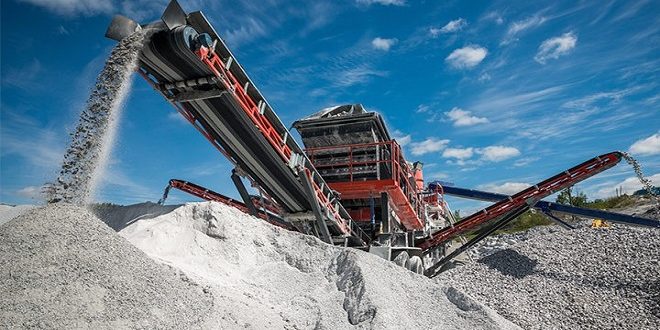In the realm of construction and civil engineering, the crucial role of aggregates cannot be overstated. These building blocks serve as the fundamental component for various structural projects, contributing to the stability, durability, and overall quality of constructions. The utilization of high-quality aggregate equipment is paramount in ensuring the reliability and integrity of these materials, thereby laying the foundation for safe and resilient infrastructures. Understanding the diverse types, multifaceted uses, and essential maintenance practices for aggregate equipment is pivotal in optimizing their performance and extending their lifespan.
Exploring Aggregate Equipment
The landscape of aggregate equipment is as diverse as the materials they handle. From crushers and screens to conveyors and feeders, each piece of equipment plays a unique role in the processing and handling of aggregates.
- Crushers: These heavy-duty machines serve the primary function of breaking down large rocks into smaller, more manageable sizes. Jaw crushers, impact crushers, and cone crushers are some of the common variants that cater to different crushing needs.
- Screens: Acting as the gatekeepers of quality, screens ensure the segregation of aggregates based on size, shape, and quality. Vibrating screens, inclined screens, and high-frequency screens are indispensable tools in the classification process.
- Conveyors: Serving as the arteries of the operation, conveyors transport aggregates from one processing stage to another. Belt conveyors, screw conveyors, and pneumatic conveyors efficiently handle the movement of aggregates, ensuring a continuous workflow.
- Feeders: These essential components regulate the flow of aggregates into the processing machinery, preventing overload and ensuring smooth operations. Vibrating feeders, apron feeders, and reciprocating feeders are integral in maintaining a consistent feed rate.
Utilization in Various Applications:
The versatility of aggregate equipment renders it indispensable in a multitude of applications across the construction and mining industries. Whether it’s road construction, building foundations, or large-scale infrastructure projects, the proper selection and utilization of aggregate equipment ensures the production of high-quality materials that meet stringent industry standards.
- Road Construction: Aggregates form the backbone of road construction, providing stability and durability to withstand heavy traffic loads and varying weather conditions. The efficient utilization of crushers, screens, and conveyors guarantees the production of uniform and robust aggregates for road bases and asphalt mixes.
- Concrete Production: High-quality aggregates are vital in the production of concrete, serving as the main component that provides strength and durability to the final product. Precise screening and proper handling of aggregates ensure the production of concrete mixes that meet specific strength and composition requirements.
- Railway Ballast: Aggregate equipment finds its application in the construction of railway tracks, where durable aggregates with specific gradation and quality are essential for ensuring the stability and longevity of the tracks under heavy train loads and varying environmental conditions.
Maintenance for Prolonged Durability:
Safeguarding the longevity and efficiency of aggregate equipment requires a proactive approach to maintenance. Regular inspections, timely repairs, and adherence to manufacturer’s guidelines are instrumental in preventing downtime and ensuring the seamless operation of the equipment. Some crucial maintenance practices include:
- Lubrication: Regular lubrication of moving parts reduces friction and prevents premature wear and tear.
- Inspection: Scheduled inspections help identify potential issues early, preventing costly breakdowns and ensuring the safety of the equipment operators.
- Cleaning: Proper cleaning of the equipment and its components prevents the buildup of debris and ensures the efficient functioning of the machinery.
Conclusion
Aggregate equipment is vital for the construction industry, providing the essential building blocks for various projects. It is crucial to use high-quality equipment and maintain it properly to ensure the reliability and integrity of construction materials.
Aggregate equipment is used in a variety of applications, including road construction, concrete production, and railway ballast. By optimizing the performance of aggregate equipment, construction companies can achieve long-term success.
Certified Material Testing Products stands as a pillar in the construction and civil engineering sectors, acknowledging the critical significance of superior quality and dependable equipment for aggregates, asphalt, concrete, and soils. With an unwavering dedication to exceptional customer service and an extensive array of products, Certified MTP is dedicated to fulfilling all your laboratory supply and equipment requirements in one convenient location.
 Pagalmusiq.com Popular News Update Website | Pagalmusiq.com
Pagalmusiq.com Popular News Update Website | Pagalmusiq.com




